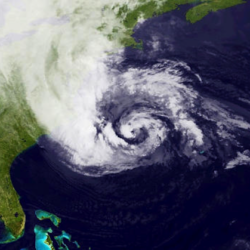Over the last three decades, weather disasters in North America have increased 500%, causing over 30,000 fatalities and $1 trillion in damages.
North America was the “most affected by the increase in weather-related extreme events in recent decades,” reinsurer Munich Re, the world’s largest reinsurer, stated in a new report that tallied the costs and advised underwriters about the risks of insuring Americans against disaster.
Not surprisingly, the reinsurance industry is sounding the alarm about the increasing cost of climate change to the U.S. and global economies. Reinsurance, the business of providing insurance to insurers, plays a big role in paying claims for catastrophes—or has until now.
There may be trouble ahead for insurance companies and claimants who are counting on the safety net of reinsurance. Hedge funds are rushing to set up reinsurance businesses in Bermuda and the Cayman Islands. The “reinsurance market is starting to look like many of the markets before the financial crisis — lightly regulated and interconnected in ways that policy makers can’t see, with banks potentially left with the wreckage,” writes Steven Davidoff. It behooves U.S. regulators to take all appropriate action.
In the meantime, every company must ask itself: what will the effects of climate change be on this business? And there will be massive effects.

